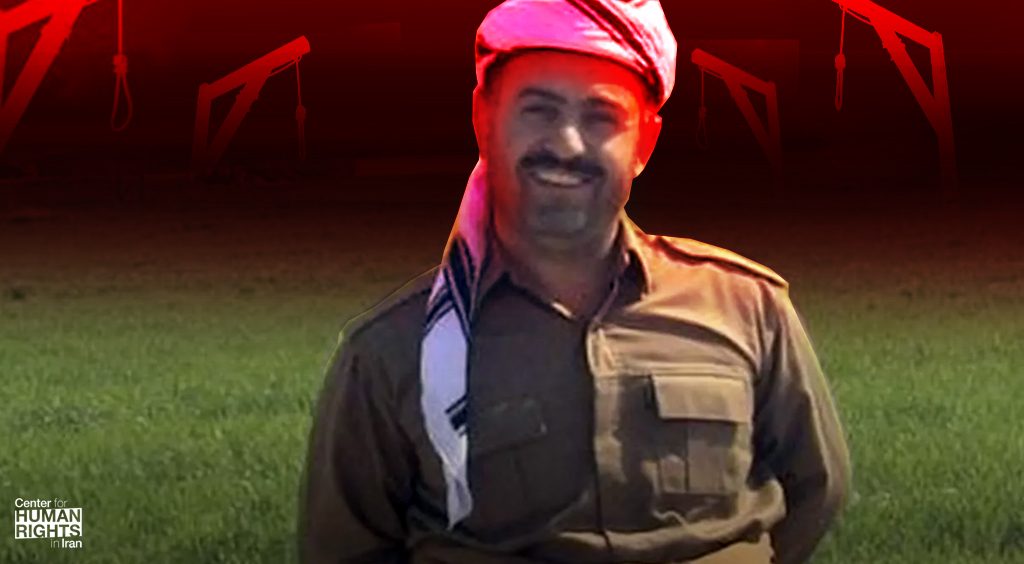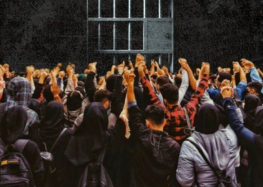Danger of Imminent Execution of Kurdish Political Prisoner, Lawyer Says
 Supreme Court Refuses to Review Death Sentence Despite Lack of Evidence of Guilt
Supreme Court Refuses to Review Death Sentence Despite Lack of Evidence of Guilt
Kurdish political prisoner Heydar Ghorbani is in danger of imminent execution as Iran’s highest court has refused to review the death sentence against him, his lawyer Saleh Nikbakht told the Center for Human Rights in Iran (CHRI) on September 21, 2020.
“Now that the Supreme Court has rejected our request for a review, I have submitted a petition to the Judiciary Chief [Ebrahim Raisi] for a judicial review based on Article 477 of the Law on Criminal Procedure but we haven’t yet received a reply,” Nikbakht said.
The office for the enforcement of sentences could carry out the execution at any time, the lawyer added.
On September 19, a video was shared on social media showing Ghorbani’s wife, Sharareh Sadeghi, calling on the international community to bring pressure on Iran to prevent her husband’s execution. Ghorbani’s son, Hamid Ghorbani, and his brother, Hassan Ghorbani, have posted similar messages.
Ghorbani, along with two other men, was arrested on October 16, 2016, and charged with the killing of several members of the Islamic Revolutionary Guard Corps (IRGC) in the village of Takhtrangi near Kamyaran, Kurdistan Province.
Branch 1 of the Revolutionary Court in Sanandaj, presided by Judge Hossein Saeedi, sentenced him to death for “armed rebellion” and “membership and collaboration with the [banned] Kurdish Democratic Party of Iran (KDPI).”
In a separate case, Ghorbani was also sentenced to 118 years and six months in prison as well as 200 lashes for the charge of “cooperation and assistance in the killing of several IRGC members,” his attorney told CHRI.
Lawyer Says There Is No Evidence of Guilt
“There’s no statement of admission or any evidence against my client,” Nikbakht said. “Mr. Ghorbani is only accused of assisting in the killings by purchasing a car and driving those who committed the killings. This is not coming from me, but rather it’s in the ruling made by the Criminal Court in Sanandaj in another case. In that case, he was only accused of assisting in the killings.
“He was separately charged with armed rebellion and sentenced to death by the Revolutionary Court, even though there’s not enough evidence to charge my client with such an act.”
Article 287 of the Islamic Penal Code states, “Any group that wages armed rebellion against the state of the Islamic Republic of Iran, shall be regarded as a mohareb, and if they use [their] weapon, its members shall be sentenced to the death penalty.”
Nikbakht continued: “During the entire six months of his detention by the intelligence and security forces, Mr. Ghorbani never admitted to being a member of the KDPI nor was he carrying a weapon [when the killings happened]. In the absence of these two factors, he cannot be accused of armed rebellion…”
“I have enough proof and evidence [to defend my client] and I believe it’s my professional duty as a lawyer to file a petition for a judicial review, which I hope will be taken into consideration by the Judiciary Chief, otherwise the execution will be carried out.”
In March 2017 Iran’s Press TV, the English-language arm of the Islamic Republic of Iran Broadcasting (IRIB), aired statements made by Ghorbani.
“In the Press TV program,” Nikbakht noted, “Mr. Ghorbani talks about how he bought a stolen car, changed its license plates and drove to where the killings took place. He was not told anyone was going to be killed. [The killers] only said they wanted to take money from the guards. In fact, Mr. Ghorbani was not aware that the intention was to kill.”
Death Penalty Increasingly Being Used to Intimidate Population and Silence Dissent
The authorities are determined to stamp out any peaceful dissent and protest and are increasingly issuing death sentences to enforce this repression. Recently, rushed political executions include:
- The authorities executed champion wrestler Navad Afkari, who participated in protests in 2018, despite reports of torture, forced “confession” and lack of evidence.
- Death sentences against five men arrested in Isfahan Province, central Iran, Mehdi Salehi Ghaleh-Shahrokhi, Mohammad Bastami, Abbas Mohammadi, Majid Nazari and Hadi Kiani, in connection with nationwide protestsduring December 2017-January 2018, were upheld by the Supreme Court on July 30, 2020, despite reports of false “confessions” extracted under torture and evidence contradicting the men’s guilt.
- Despite serious questions regarding evidence of guilt, two Kurdish political prisoners, Diako Rasoulzadeh and Saber Sheikh-Abdollah, were executed in the Central Prison in Oroumiyeh, western Iran, on July 14, 2020. The two men were executed without prior notice to their families or legal representatives.
- The death sentences against three young men for their participation in theNovember 2019 protests that swept through Iran were issued. The sentences against Amirhossein Moradi, Saeed Tamjidi and Mohammad Rajabi were upheld by Iran’s Supreme Court on July 10, 2020. The cases involved multiple denials of due process and reports of “confessions” extracted under torture.
Read this article in Persian






